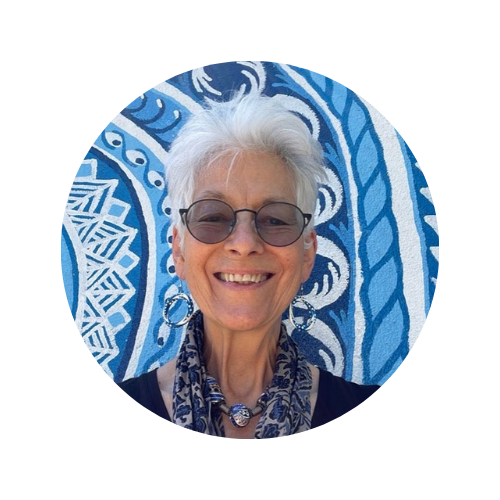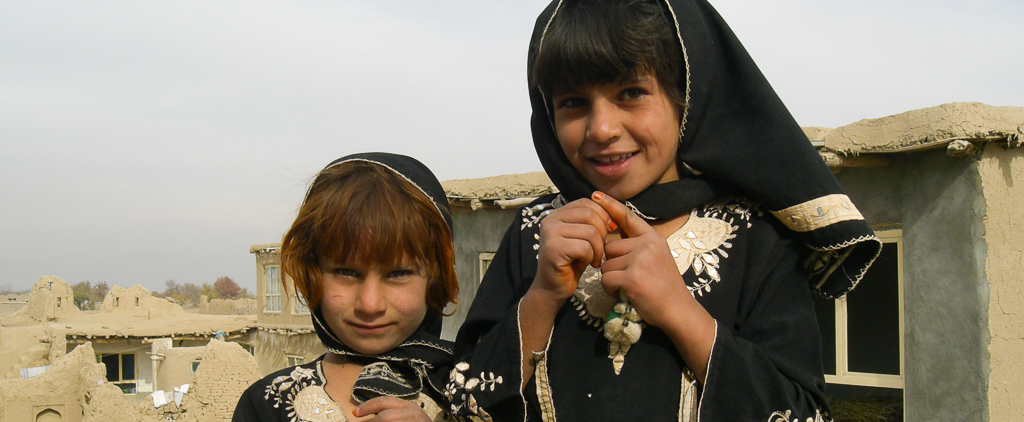In 2022, young women and girls in Afghanistan were barred from attending secondary school and university. The Taliban also quickly restricted employment opportunities for women and girls to only occupations that align with traditional gender roles, such as midwifery, primary school teaching or working from home.
Today, access to education, quality of teaching and employment opportunities for women and girls remain alarming. For example, before Taliban rule, women held 35% of teaching positions in Afghan schools. However, many teachers have since left the country and are often replaced by those less qualified pedagogically. This has resulted in acute staff shortages, huge class sizes and reduced teaching quality. Compounded by worsening economic conditions, this combination has led to many families withdrawing children from school altogether – to work, marry or make other private arrangements. Even boys’ secondary school attendance is reported to have decreased by more than 10% in 8 provinces and university attendance to have declined by 50%.
However, despite this unprecedented level of hardship and discrimination faced by girls and women in Afghanistan, we must keep fighting for their access to education. This is because women and girls’ access to education enables them to reach their economic, social and political potential in society. Moreover, whilst the limited employment opportunities available for Afghani women may only represent a small fraction of their former occupations, those that remain are still emblematic of the intrinsic role women perform supporting families, local communities, overcoming skills shortages (particularly in health and education sectors) and contributing to civil society.
And it is in my role as President of the Afghan Australian Development Organisation (AADO), that I have seen how international development organisations on-the-ground in Afghanistan can play a critical and ongoing role in this process.
First, international development organisations focusing on gender equality, education and women’s economic empowerment bring an undeniable strength and experience to the complex system that women and girls face in Afghanistan. This strength is bolstered by a long, global and historical commitment to the ethos that women and girls’ access to education, and women’s economic empowerment, are cornerstones to healthy and sustainable communities.
Second, international development organisations focusing on education can leverage key tools and educational resources from overseas and international curricula, and then combine them with localised teaching and practices. This is possible even as the context in which they are operating becomes increasingly fraught and access to resources are minimised.
Third, as many international organisations rely on external funding they can be agile and quickly respond to policy shifts even when economic depression has set in.
Let’s unpack some on-the-ground examples further to explain.
Organisations such as AADO are striving to fill the huge gap in primary school education of Afghan women. Whilst still operating within Afghan Ministry of Education requirements, AADO is employing a community-based schooling model for literacy and numeracy courses. Funded entirely by donations and local goodwill, the program is taught by local women assessed with requisite skills and carefully organised through the support and involvement of local authorities. The program involves 5 larger village homes, each hosting groups of 20 women over the year. This focus on local teaching is critical. When international development organisations tap into local networks and are led by community leaders, even modest funding can have a high return compared with development aid through contractors or imported staff.
In mid-2022, AADO initiated an accelerated Year 12 course for secondary schoolgirls to successfully graduate from high school. This course was then able to switch to online delivery when secondary schools were barred for girls. Also funded by private donations, delivery of the course is through liaison with local Afghan teachers, male and female, of an Afghanistan Education Support Coalition. To date, 810 girls in Kabul have undertaken AADO’s intensive online Science (Physics, Chemistry), Maths (Algebra, Trigonometry) and English Course (SMEC). Statistical Probability was also recently added to the Maths course at the girls’ request – it is hard to overestimate the incredible spirit of these young women, despite their circumstances, that my team has witnessed .

Image of SMEC course. As at 28 February 2024, 97 girls attend in person, 103 attend online and 65 use USBs provided by AADO as they do not have internet access. Source: AADO.
More broadly, for the wider collection of international development organisations working on women and girls’ education in Afghanistan, such as the Indigo Foundation, Mahoba’s Promise, the Malala Fund, UNESCO and AADO, there have been further flickers of hope for our work moving forward. In January 2024, the restriction on girls attending private secondary schooling was lifted meaning that girls can physically attend private secondary education, provided they are escorted to classes. Whilst a small step, the Edict is a relief for development organisations deeply anxious about the banning of any education beyond primary level in-person.
Critically, it has also been argued that this Edict indicates a possible recognition on the Taliban’s behalf of several of the positive impacts of women and girls’ education. Although no official reasons were given, on-the-ground it is believed the Edict responds to a recognition by the Taliban that the country cannot continue with such an acute skill shortage in schools, hospitals and other fields traditionally occupied by women. This is supported by the simultaneous inclusion of private and government medical institutes and hospitals providing educational services for Afghan girls. From contacts in Kabul, it is also thought the Edict is an acknowledgement that education is a channel by which the operating Government can attract foreign investment funding – which has become increasingly important as global economic sanctions continue to cripple the Afghan economy. Whilst our goal is not to fund schools to support the operating Government (indirectly via taxes), the Taliban policy shift indicates the upwards pressure international development organizations can play in advocating for the rights of women and girls to education and equality, and in highlighting the adverse impacts for the country of banning Afghan girls attending secondary schools.
Although no substitute for universal government education and still operating in small numbers, community-based and private schooling opportunities for women and girls plant seeds of hope and growth within the strict political system set by the Taliban. It is critical that we do not give up on Afghanistan but continue to support women and girls to achieve, flourish and learn even if it is a slow, multi-faceted and complex process. Even when faced with adversity, equipped with education and resources, the young women we work with are role models for other young girls and communities, fill critical skills shortages, and build female independence and confidence. They are the keys to unlocking change and hope for the future.
———————————–
 Jackie M Fristacky AM is President Afghan Australian Development Organisation (AADO). A retired lawyer and public policy analyst, she formely taught at Melbourne and LaTrobe Universities, worked in Federal and State Governments including as a Tribunal member, then served as a Yarra City Councillor and Mayor. Born in Kabul, Jackie authored a memoir on her mother’s life there: “My Mother and the Prince: Jana Shindler Fristacky in Kabul 1946-1952”.
Jackie M Fristacky AM is President Afghan Australian Development Organisation (AADO). A retired lawyer and public policy analyst, she formely taught at Melbourne and LaTrobe Universities, worked in Federal and State Governments including as a Tribunal member, then served as a Yarra City Councillor and Mayor. Born in Kabul, Jackie authored a memoir on her mother’s life there: “My Mother and the Prince: Jana Shindler Fristacky in Kabul 1946-1952”.
The Afghan Australian Development Organisation is a voluntary, nonprofit, non-government member organisation. Its primary purpose is to implement projects that assist in the reconstruction and sustainable development of communities within Afghanistan. Within Australia AADO seeks to support the Afghan community.
